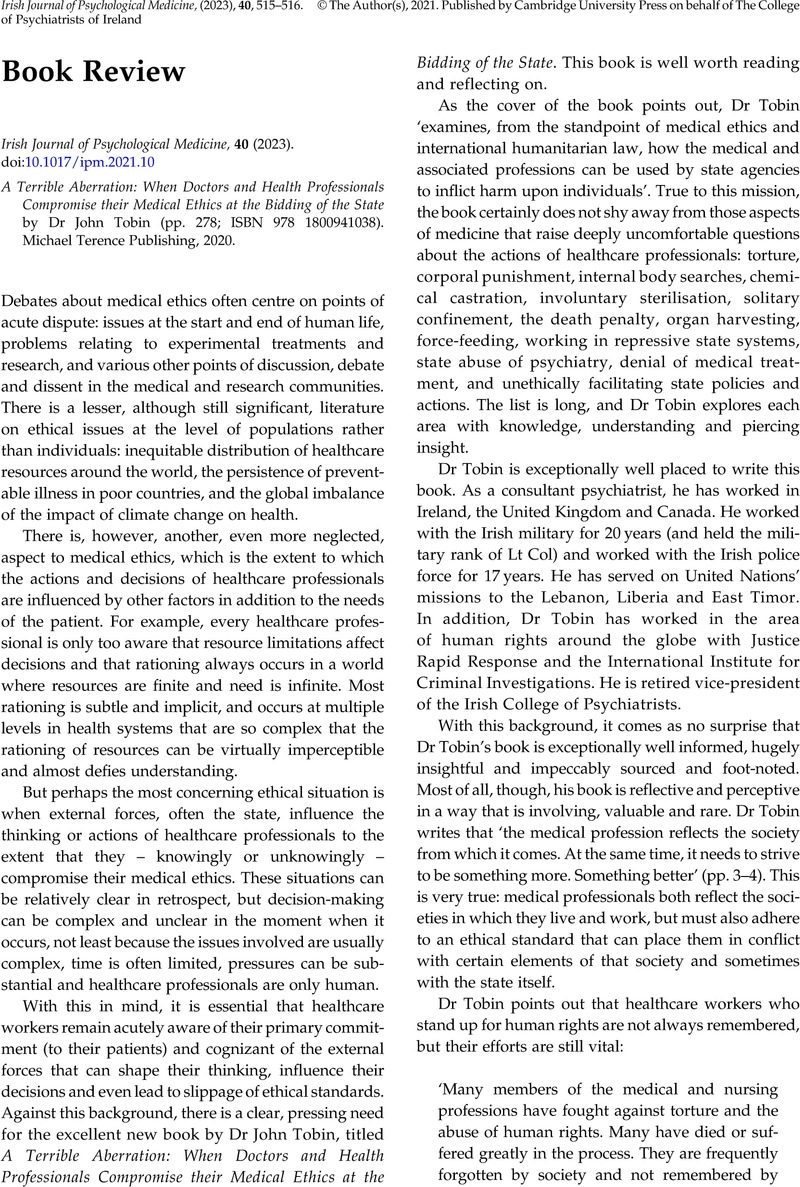No CrossRef data available.
Article contents
A Terrible Aberration: When Doctors and Health Professionals Compromise their Medical Ethics at the Bidding of the State by Dr John Tobin (pp. 278; ISBN 978 1800941038). Michael Terence Publishing, 2020.
Review products
A Terrible Aberration: When Doctors and Health Professionals Compromise their Medical Ethics at the Bidding of the State by Dr John Tobin (pp. 278; ISBN 978 1800941038). Michael Terence Publishing, 2020.
Published online by Cambridge University Press: 08 March 2021
Abstract
An abstract is not available for this content so a preview has been provided. Please use the Get access link above for information on how to access this content.

- Type
- Book Review
- Information
- Copyright
- © The Author(s), 2021. Published by Cambridge University Press on behalf of The College of Psychiatrists of Ireland


